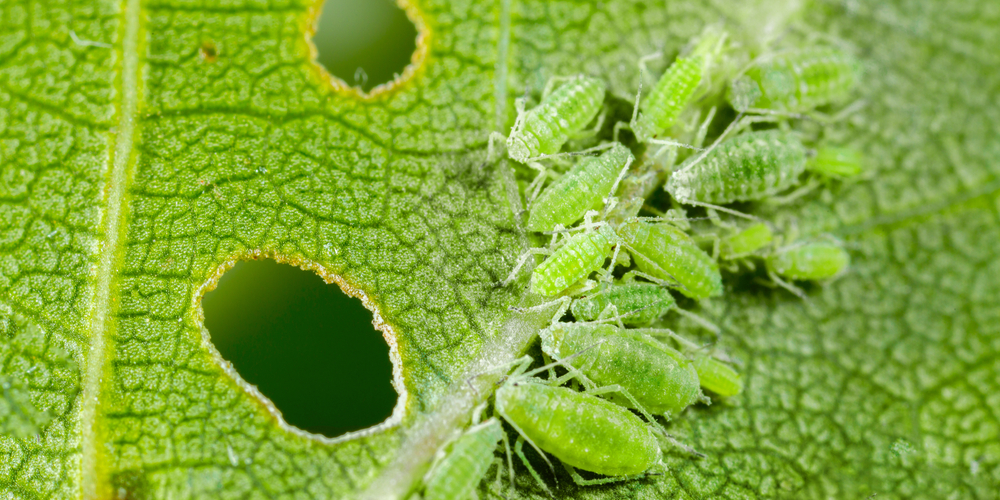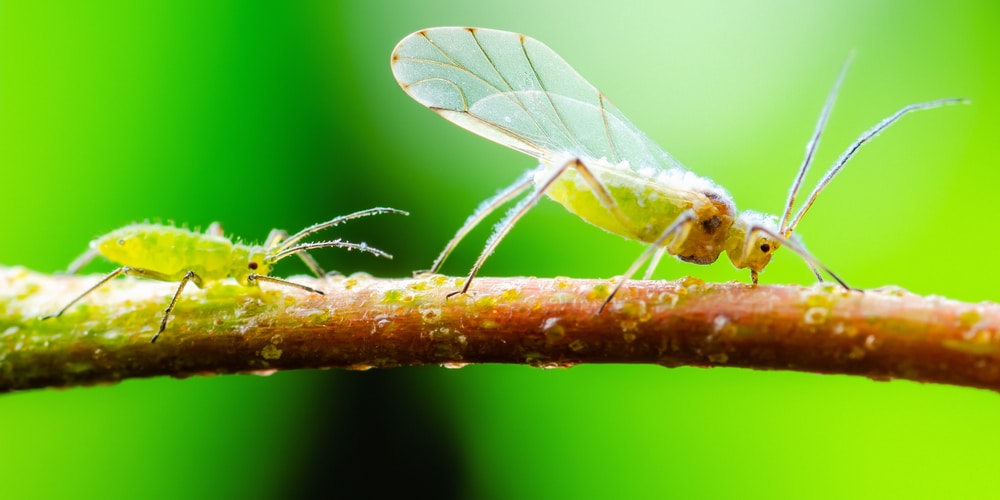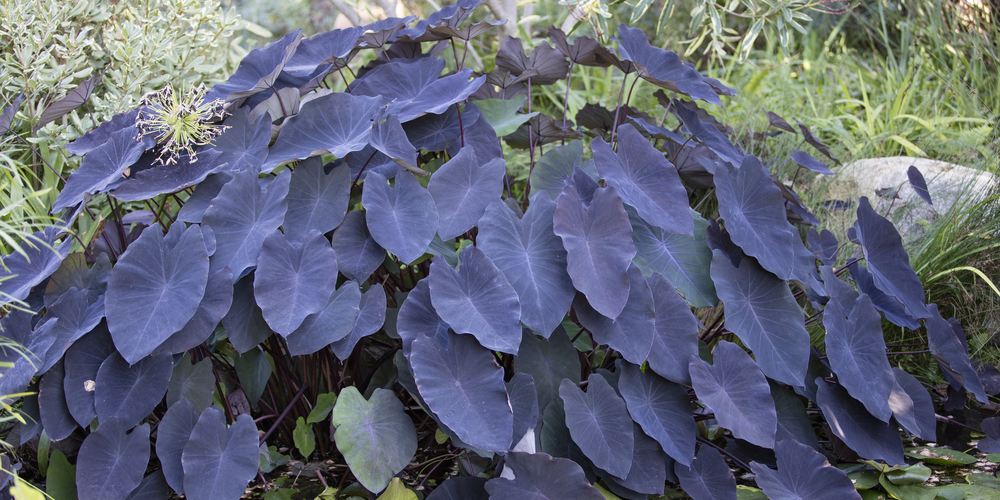North America is home to over 1,300 species of aphids. These minuscule insects measure only ⅛-inch long.
Aphids feed on plant sap, which they can obtain from a combination of elephant ear leaves, stems, and roots. Since their eggs can survive cold winters, it’s common for these pests to return each season if you don’t take preventative measures.
Why Are Aphids Attracted to Elephant Ears?
Aphids are typically most attracted to elephant ears early in the plant’s growth cycle. That’s because aphids find new growth the tastiest. But once they arrive, they often stick around for the remainder of the season.
These pests lay their eggs underneath elephant ear leaves. Due to their quick reproductive cycle, aphids quickly inundate these plants, having a potentially detrimental impact on an elephant ear’s health.
If you have other infested plants nearby, it doesn’t take long before aphids make their way to elephant ears. For this reason, it’s vital to nip the problem in the “bud” as soon as you discover it.
How To Remove Aphids From Elephant Ears
Since aphids release a sticky, sweet substance, gardeners commonly struggle with ants shortly after the start of an aphid infestation. So, follow the methods below to immediately get aphids off your elephant ears.
Spray Them
Spraying your elephant ears with a hose is the fastest way to remove aphids from them. Luckily, elephant ears are a sturdy plant, so you can give them a good blast of water without worrying about damaging them.
The downside to this organic, cheap method is that you’ll need to spray your elephant ears regularly to keep the aphids at bay.
Use Insecticidal Soap
The most effective way to remove aphids and keep them away is by using insecticidal soap. You can use a spray bottle to saturate your elephant ear leaves with insecticide to kill the aphids.
Then, use a hose to rinse the dead aphids from your plant.
Oil Spray
Using an oil spray is an alternative method to insecticidal soap. It’s an effective way to coat aphids in oil, which kills them.
However, it’s easy to overdo it and injure your elephant ears by saturating them in too much oil.
Preventing Aphids From Returning
Once you get your aphid infestation under control, consider implementing some of the strategies below to prevent them from returning (a common scenario, unfortunately).
Weed Control
Aphids thrive in thick, weedy environments. Therefore, if your plants border an area with a lot of dense vegetation, there’s a high chance that aphids will move back onto your plant.
So, keep the grass cut short around your elephant ears and ensure no weeds are touching any part of the plant.
Buy Ladybugs
One of the best natural ways to prevent aphids is by infiltrating your elephant ears with ladybugs. Ladybugs love to eat aphids, and you can often find them for sale at a local garden center.
Simply release the ladybugs on your elephant ears and let them go to work.
Reduce Moisture
Aphids love moist environments. Therefore, ensuring you don’t overwater your plants is vital for creating an environment that discourages them from visiting.
Admittedly, this is challenging; elephant ears thrive off two to three inches of water every week.
Final Thoughts
Aphids are a common pain point among many gardeners. While aphids love eating elephant ears, they’re not picky, transferring to and from nearby plants if you don’t treat the issue.
By incorporating one or more of the strategies we shared here, you should hopefully soon be on your way to insect free elephant ears.


